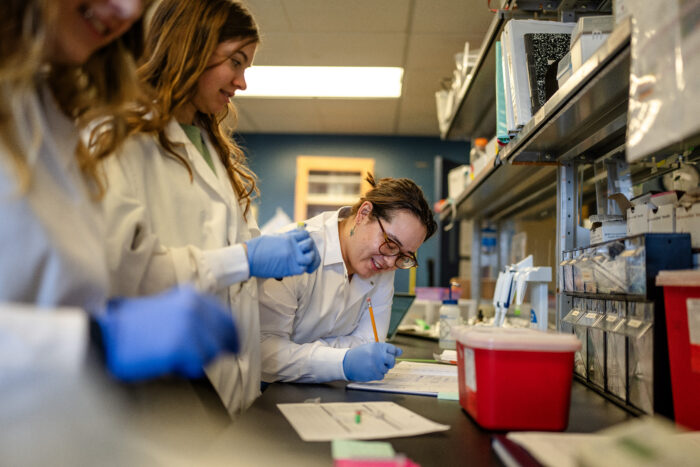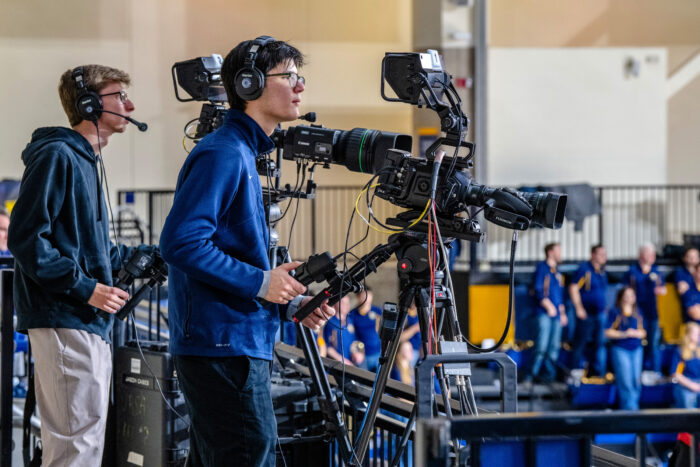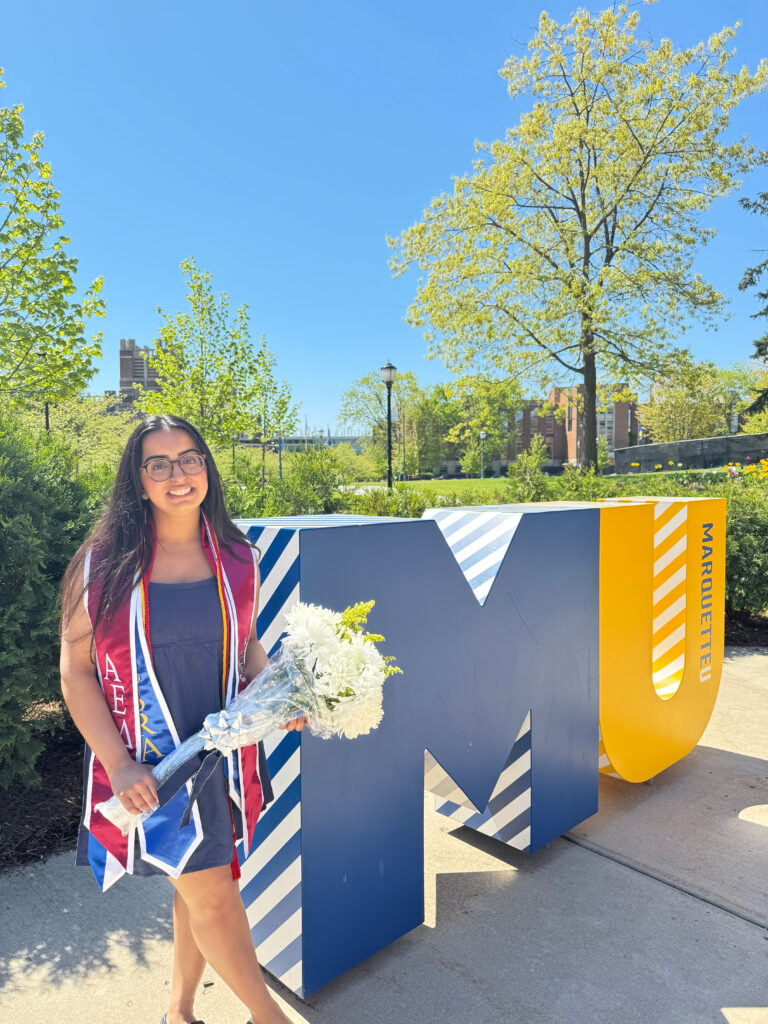
As a high school senior, Priya Ahuja initially set out to pursue college and medical school outside of Wisconsin at Case Western University in Ohio or the University of Miami in Florida.
The COVID-19 pandemic drastically changed those plans, as she soon found herself — and her passion for health care — in the biomedical sciences program at Marquette, just miles from home.
The service-minded Ahuja had always looked for ways to help the community around her. In spring 2020, she was a senior at Brookfield Academy getting ready to pitch a plan to local restaurants to help reduce food waste. The pandemic disrupted those plans, too.
Enter biomedical sciences’ disciplinary honors program — a six-credit program in which students can demonstrate exceptional work in research or community engagement. This was her opportunity to make good on her dreams of helping people — children in particular — to understand the importance of nutrition.
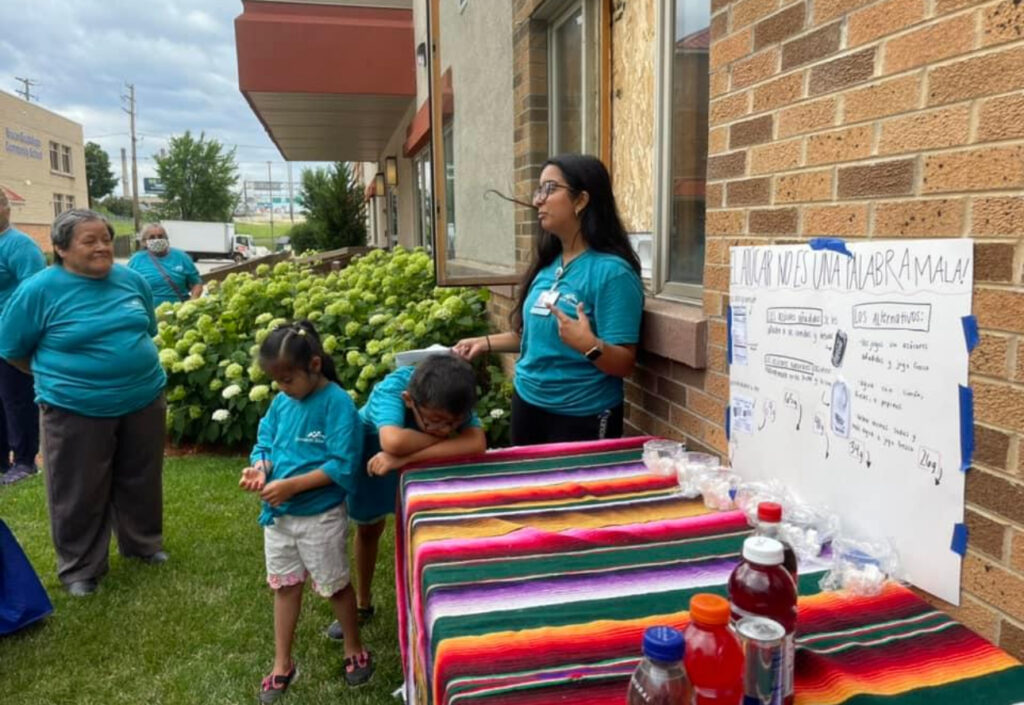
“I’ve always had an inclination toward improving people’s nutrition education, reducing food waste, and creating better outcomes for people who don’t have enough food,” Ahuja says. “When I learned about food deserts in one of my freshman classes, the stark contrast between Milwaukee and its suburbs stuck with me.”
The United States Department of Agriculture defines a food desert as an urban area in which residents have particularly low income compared to the state average and live more than one mile away from a large grocery store.
One of Ahuja’s most formative experiences came as a community advocacy volunteer with the Sixteenth Street Clinic on Milwaukee’s south side, where she learned that the world of health care extends beyond the walls of a hospital.
“We did so many things that you wouldn’t typically think of as ‘health care,’” Ahuja says. “We would go for walks and talk about health promotion with the patients. We’d set up Fit Bits for them and talk about the benefits of exercise. We started farmers market tours and preached the importance of why certain foods are good for you. It was an eye-opening experience.”
Reflecting on her time at the Sixteenth Street Clinic and her volunteer work as a Spanish translator for the Physical Therapy Clinic on campus, Ahuja thought about how to incorporate her disciplinary honors project, “Development of a Nutrition Education Program for Elementary-level Kids,” into the community. She brought the opportunity back to the Sixteenth Street Clinic, where she taught local children about healthy eating through hands-on activities like making whole grains and fibers out of molding clay and asking questions about where their food was coming from.
“The questions I asked the kids made it a more positive experience for them and made the kids feel like they have more control over their eating habits as opposed to being told what to eat by an adult,” Ahuja says. “I may not be able to change the structure of grocery stores or fix food prices or the inflation that can create food deserts, but I can lay the foundation for kids through nutrition education to live healthier lives as teenagers and adults. I couldn’t imagine not taking that opportunity.”
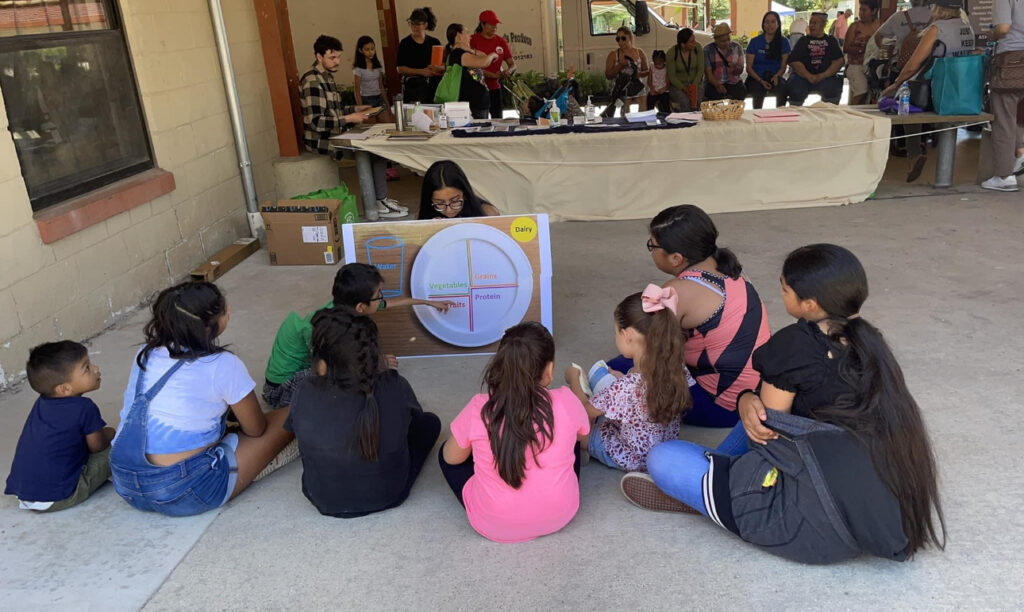
As she prepares to walk across the stage at Commencement, Ahuja says she can’t help but think about how much she learned in her undergraduate career and how lucky she was to attend Marquette.
“I think if someone had told me when I was applying to college that I would be where I am now — writing contracts and diplomatic emails and entering leadership roles — I wouldn’t have believed them,” she says. “The education I earned here at Marquette is a privilege and it’s a great feeling to use that privilege to help others.”
Looking ahead, medical school is still Ahuja’s plan, albeit after a gap year where she’ll be teaching her nutrition education course at the Milwaukee Academy of the Sciences — a partnership she hopes continues long after she graduates.
“There’s a current [Marquette] student who will take over my project once I graduate,” she says. “During my gap year, I’m hoping to begin building a long-lasting partnership with the academy that can benefit students like me and the children at the school.”
Reflecting on her time at Marquette, Ahuja recognizes that her service experiences and her project colored the picture of what her future now looks like.
“I was so against going to school close to home, and now I can’t imagine leaving Milwaukee and am grateful I went to Marquette,” Ahuja says. “I’ve made so many connections and I’ve come to understand the health needs of this community. But no matter where I go as a physician, I want to be in the community talking with people about their needs and what I can do to help them.”

